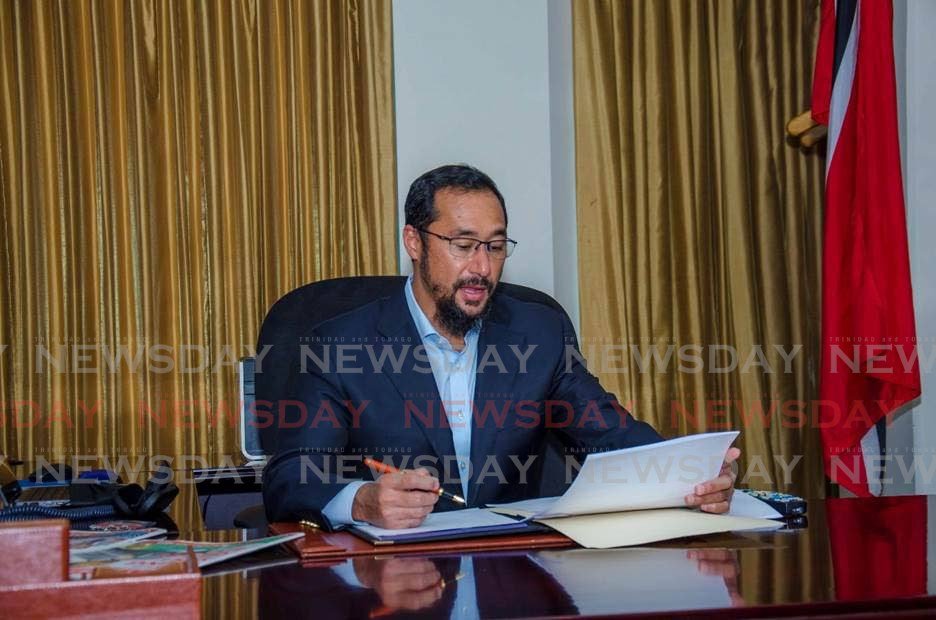Fuel market liberalisation

THE EDITOR: TT’s national budget 2020/21 was based on an estimated oil price of US$45 per barrel and gas price of US$3/MMBtu, with a fiscal deficit of 5.6 per cent of GDP. The theme of the budget was Resetting the Economy for Growth and Innovation, whereby one of the key interventions was liberalising the domestic fuel market, in view of estimated international oil prices. Through this arrangement, the fixed retail margins for all liquid petroleum products will be eradicated, with petroleum retailers and dealers now being able to set their own margins.
Generally, the prices at the pump have been lower than international market prices as they have been protected by the Ministry of Energy and Energy Industries. These low prices have been subsidised by petroleum companies and the State. Now, this new deregulated market will end the 46 years of fuel subsidies, with a high social expenditure of $25 billon in the last 15 years.
Fuel subsidies represent a tremendous fiscal loss to the economy through this burden-sharing mechanism, as government’s proportion of financing the fuel subsidy has grown in the latter years. One of the peaked years was 2012 with arrears of $7.1 billion (4.3 per cent of GDP). Consequently, Petrotrin suspended tax payments to the government until the majority of the subsidy arrears were financed via budget allocations. This correlates with the minister’s statement in the budget where “usage was inefficient from an economy-wide perspective,” as it represents an inefficient allocation of government’s finances.
To further reinforce liberalising the domestic fuel market, fuel subsidies challenges one of the main pillars of Government’s long-term fiscal blueprint, which is the Heritage and Stabilisation Fund. The HSF’s objectives are bolstering fiscal discipline, ensuring available funds for future generations and steadying impacts of commodity price volatility. However, the fuel subsidy challenges the HSF by diminishing fiscal discipline and stimulating the urge to consume the nation’s resources rather than save for future generations.
In the time when the price of oil was high, governments spent more on fuel subsidies and made less contributions to the HSF. The IMF states that total subsidy benefits were approximately $12,000 and $24,000 a year for the lowest-income and highest-income groups, respectively. This verified the inequity created owing to fuel subsidies.
Furthermore, according to the IMF, in 2015 TT ranked 12th as one of the chief subsidisers in the world for vehicle-related externalities such as congestions, accidents and road damage, with accidents being most significant. Therefore, the liberalisation of the fuel market is a practical incentive of diminishing traffic congestion and other traffic-related externalities, as well as TT’s contribution to global warming.
The IMF estimated the elasticities of fuel prices projected a 29.7 per cent decline in aggregate fuel demand from the elimination of fuel subsidies, contributing to a decline of US$178 million in accidents, road damage costs and congestions.
Another merit of fuel market liberalisation is the potential to use fuel taxes as a predictable source of governmental revenue. The Government can enforce a reasonable and fair tax based on individuals’ consumption levels of fuel. Though such tax may be minute, as the majority of the population are fuel consumers the tax may prove to “rake in” a significant portion of revenue.
This revenue can be reinvested in various sectors such as developing TT’s digitalised economy through investments in new tech businesses, engagement in technology solutions and digitalisation and creation of tech employment to facilitate paperless eco-system environments for public and private partnerships in the construction, manufacturing and agricultural sectors.
Furthermore, as of 2020, according to the Central Bank, net public sector debt to GDP ratio was 82.7 per cent. The saved finances from the removal of the fuel subsidy can be allocated towards debt reduction to make TT financially safer regarding international investment opportunities, and protect against inflation and potential banking/currency crises in the future.
SHIVANI MAHASE
Sangre Grande


Comments
"Fuel market liberalisation"